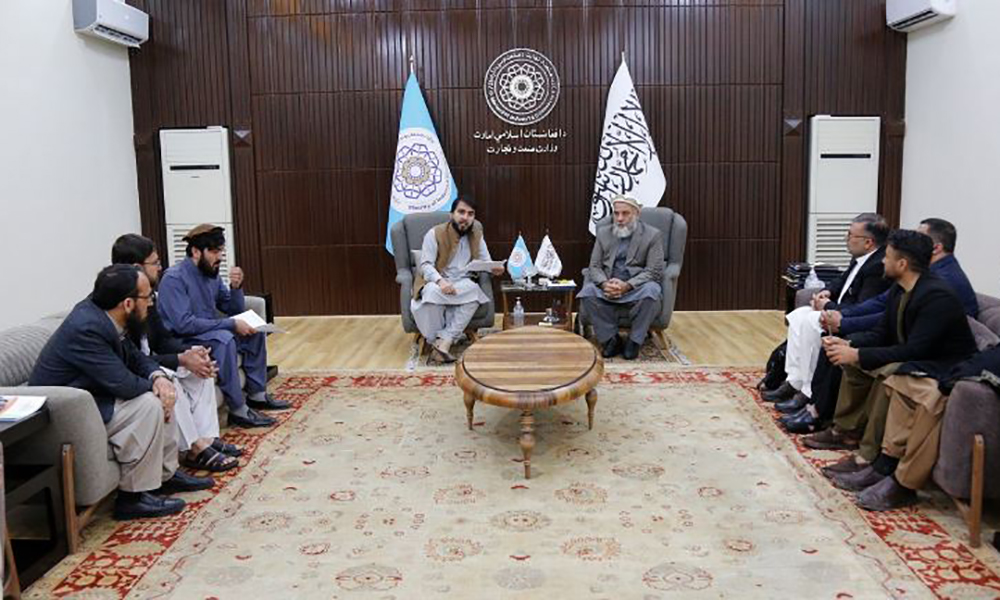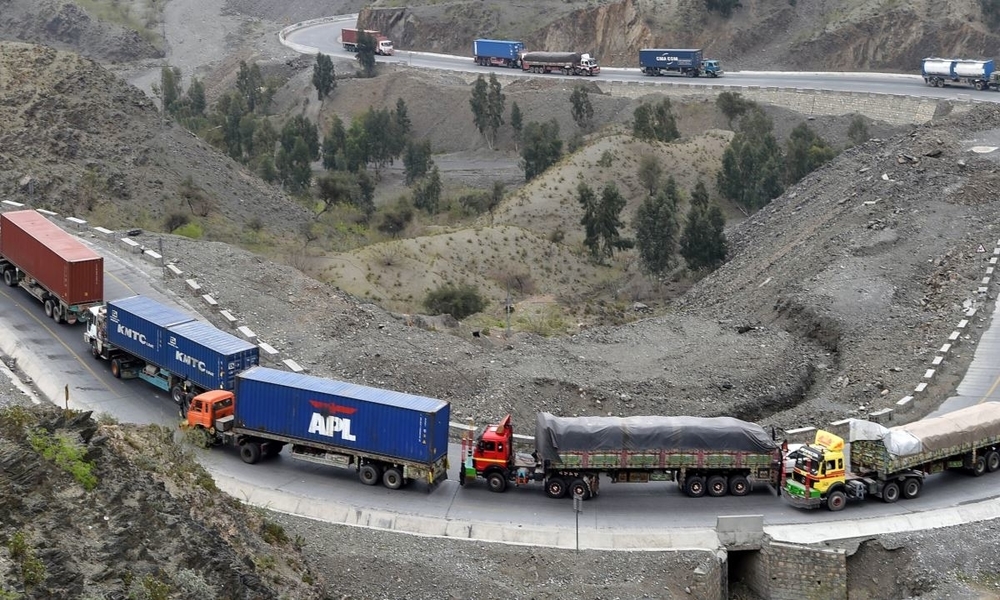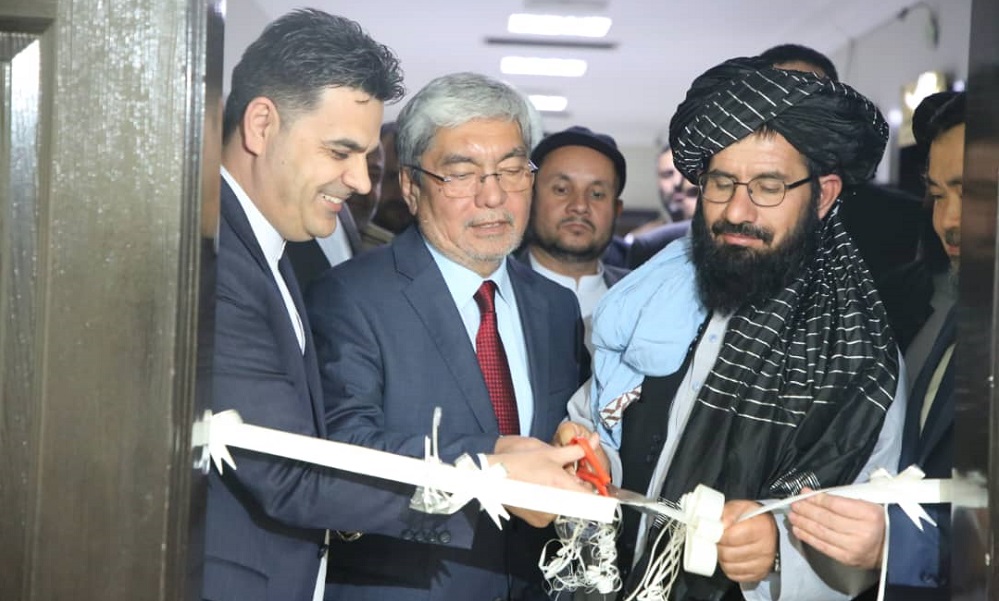Business
250 companies submit bids for iron, lead mines in Afghanistan

Afghan Ministry of Mines and Petroleum said this week that 250 domestic and foreign firms have submitted their bids for the iron mine in Herat and lead mine in Ghor province.
Esmatullah Burhan, a spokesman for the Ministry of Mines and Petroleum, said that it is evaluating the bids and will soon announce the winners.
The iron ore in Herat’s Ghoryan district is estimated to hold 18 million tons of iron. The lead mine in Ghor is also considered to be one of the largest lead mines in the region.
“The government will collect a good amount of revenue from it. Hundreds of thousands of jobs will be generated directly or indirectly,” said Burhan.
Private sector members say IEA should prefer domestic companies over foreign firms for investment in the mining sector.
“It is in the plan of IEA to prefer the domestic companies. Domestic companies would initially bring small companies and then big companies to make major investment in Afghanistan,” said Sherbaz Kaminzada, head of Chamber of Industries and Mines.
Economic experts believe attracting investments in the major mines would help address economic challenges and poverty in the country.
“Considering the existing situation, I think it will benefit the Afghan economy because it will help reduce unemployment, increase tax and find markets for our minerals,” said Taj Mohammad Talash, an economic expert.
Afghanistan possesses a wealth of nonfuel minerals whose value has been estimated at more than US$1 trillion.
However, this sector has remained largely untouched as the former government was never able to successfully regulate the industry. For generations, the country has been renowned for its gemstones – rubies, emeralds, tourmalines and lapis lazuli.
Business
Commerce ministry inks 10 MoUs to boost development of small and medium-sized businesses

The Ministry of Commerce and Industry said Thursday it has signed cooperation agreements with ten institutions to support the development of small and medium-sized enterprises.
Nooruddin Azizi, Acting Minister of Commerce and Industry, said: “In the implementation of projects, we must pay special attention to our activities and actions and try to make useful use of the projects according to the requirements and benefit the beneficiaries.”
These ten institutions are to present their projects, the total value of which is around over $1.1 million. The projects will be carried out in Kabul, Baghlan, Ghor, Herat, Logar, Nangarhar, Balkh, Badakhshan and Jawzjan provinces and provide direct jobs for about 1,000.
To date, the ministry has signed MoUs for 72 projects in total, collectively valued at about $53.6 million.
These agreements have been signed with domestic and foreign companies for the establishment of small and medium-sized businesses.
In accordance with the principles and laws of the Islamic Emirate and prioritizing the implementation of projects for immigrants and returnees and internally displaced people, the ministry said 635,865 people will benefit through jobs directly and over 4.3 million will benefit indirectly in 25 provinces once these projects are implemented.
Business
Export volume totals over $140 million in last month of 1402

The National Statistics and Information Authority (NSIA) confirmed Tuesday that in the last month of solar year 1402, (March 2024) Afghanistan’s exports totaled $141.1 million and imports totaled $789.6 million.
This was down from $174 million for exports in the same period in 1401. However, imports increased by $99.2 million in 1402, up from $690.4 million.
Most exports in the last month of 1402 went to Pakistan, India and the United Arab Emirates, while in the last month of 1401 exports went to Pakistan, India and China.
Business
Afghanistan-Kazakhstan chamber of commerce opens in Herat

The Ministry of Interior said the governor of Herat province Islam Jar met with Alim Khan Yasin Gildaye, Ambassador of Kazakhstan to Afghanistan, to discuss various issues around trade.
According to the ministry, the two sides discussed the expansion of trade facilities, increasing the volume of trade exchanges between traders of the two countries, reducing customs tariffs, solving the challenges of traders and issuing visas to them.
The Afghanistan-Kazakhstan Chamber of Commerce has been opened in Herat in order to facilitate and increase trade between the two countries.
-

 Sport4 days ago
Sport4 days agoACL fever grows as fixtures finalized
-

 World4 days ago
World4 days agoUS will not take part in any Israeli retaliatory action against Iran
-

 Latest News4 days ago
Latest News4 days agoOver 50 people dead in traffic accidents over Eid
-

 Latest News4 days ago
Latest News4 days agoUS identifies Kabul airport suicide bomber
-

 Latest News4 days ago
Latest News4 days agoGood rains enable DABS to increase power production in Kabul
-

 Business4 days ago
Business4 days agoAfghanistan-Kazakhstan chamber of commerce opens in Herat
-

 World3 days ago
World3 days agoIsraeli military vows response to Iran attack as calls for restraint mount
-

 Latest News3 days ago
Latest News3 days agoPakistani police give Afghans in Balochistan one day to leave
























